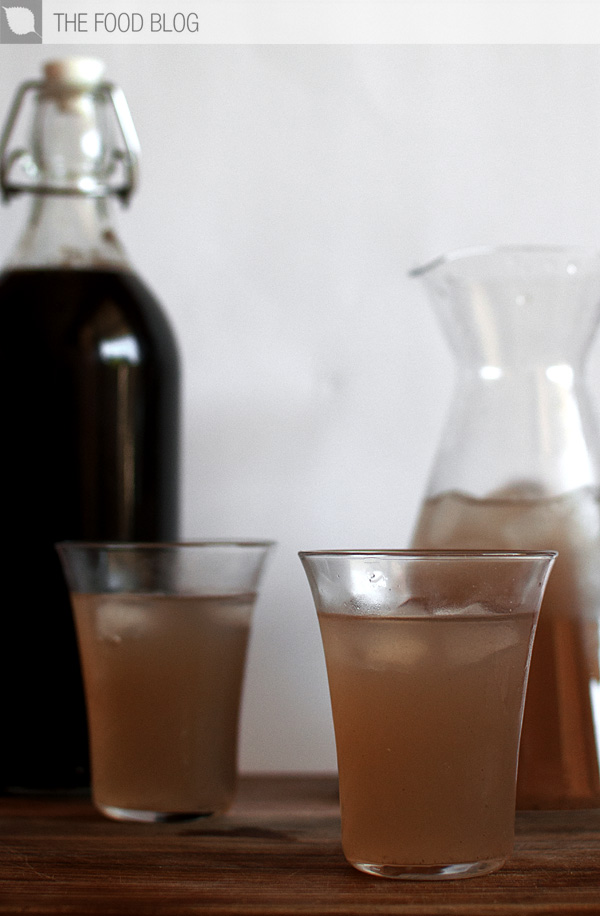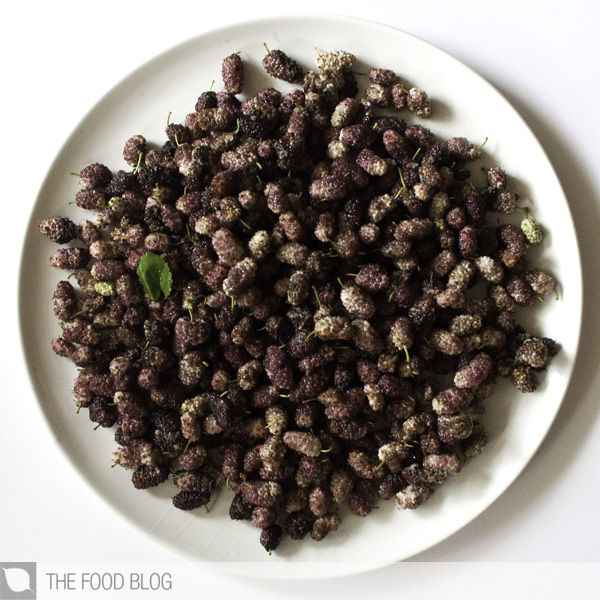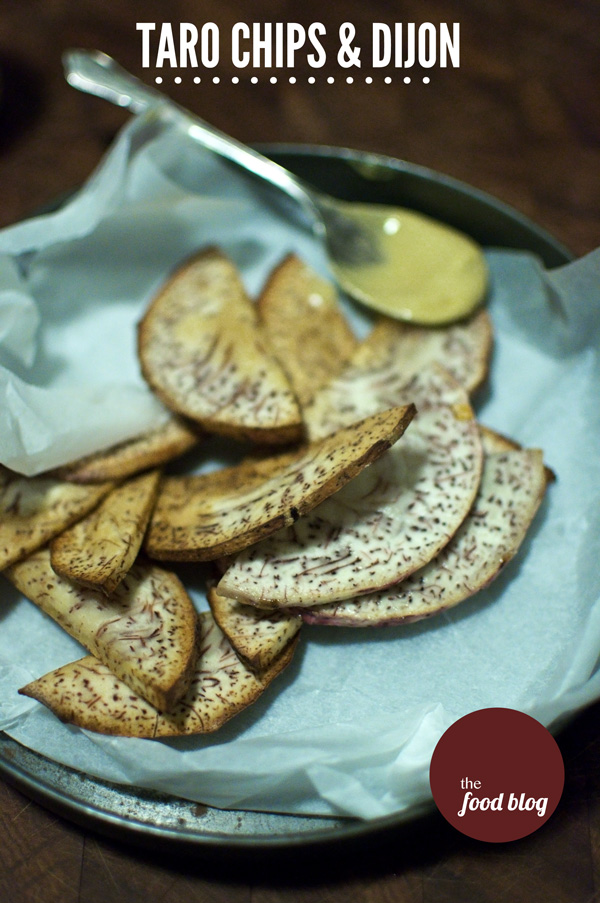
There’s this Lebanese proverb, “only free vinegar is sweeter than honey”. It’s basically the cheapo Lebanese way of saying that the best things in life are free. For me, the old adage rings truest in reference to food, and I get a good dose of life’s free stuff by foraging. I’ve spoken about this before so there’s no point regurgitating. There is so much food, and I try my best to get out there and grab my share. Over the years, I’ve made orange and blossom cordial from a neglected shrub, harvested snails for spaghetti, made loquat jelly from a randomly self-seeded tree, collected wild dandelions for hindbeh from a sidewalk, found chestnuts in abundance in Armidale, picked a dozen different types of fruit, written poetry and made blackberry jam in Germany for God’s sake! I’m not even counting all other non-documented foraging expeditions I’ve enjoyed. Foraging and cooking from what I’ve collected is without doubt the source of my most rewarding food memories.
For some reason, foraging is not Sydney’s favourite pastime. You can blame it on the lack of fruit trees and forage-worthy wild food as much as you’d like, but you know that it would be untrue. Sure, I agree that Sydney’s landscape is dominated by bluegums, Port Jackson figs, Moreton Bay figs, bottle brushes and banksias, and they don’t seem the ideal choice for good eating; but there is also so much food out there ripe for the picking. It could be a tree heavy with mandarins forgotten in your neighbour’s backyard waiting for you to visit. Maybe it’s a generous olive tree studded with fruit, sitting there lonely on a dead end street; or perhaps two young bulbs of wild fennel making out discretely in the park – it is good, abundant and free food, but no one will bother harvesting it. Sydneysiders just don’t forage.

Last Sunday I visited Laurice, a childhood friend of my mother’s from back when they both lived in the south of Lebanon in the tiny, remote farming village of Jarmaq. From the age of seven, Laurice and mom would walk every day for two hours – rain, hail or shine – to get to school, and then two hours back. As you could imagine, the girls became inseparable; but life happened and Laurice migrated to Australia when she was around 18 and lost contact with my mother for 40 years. When I drove mom to Laurice’s in 2006 for their first reunion, they stood facing each other, crying, speechless for what felt like a lifetime. In a daze of decades, they mentally pulled away the lines and creases from their estranged friend’s face until, once more, they saw each other, two young children running down one of Jarmaq’s wheat fields, late for school. They hugged and sobbed for the remainder of the visit.
Since that day, Laurice has become like a mother to me, and she treats me like a son. I tease her as much as I possibly can and raid her fridge constantly (indoor foraging, another great hobby). She has a fig tree that produces some of Sydney’s sweetest fruit, and on Sunday I found out that she also has a mulberry tree, with berries so ripe they dropped down from their own weight. I gave her a hard time about it and she gave me some lame excuse – something about being diabetic and 1.4m tall. She handed me a bucket and sent me off to pick mulberries to my heart’s content and told me I could take them home. I gorged myself on these little wonders while I picked them, and ate more when I got home, but realised that I needed to preserve them somehow because there was no way I was going to get through a kilo of mulberries before they went past their prime.
A traditional Lebanese drink is mulberry cordial. You see it served on hot summer days, in weddings, funerals and baptisms. Our love for the mulberry tree is unparalleled; at the turn of the century, it was the tree that fuelled our local economy and allowed the Lebanese to create an industrious silk trade to satisfy the French’s demand for fine fabrics. Silk worms favoured mulberry trees and so Lebanon went crazy with mulberry plantations which fed the silk worms and also fattened our sheep for qawarma, Lebanese lamb confit.
But back to the cordial, making it is easy and black mulberries are ideal – they have the right balance of sweet and sour; but I had to make do with pink mulberries. The end result turned out just fine, but in hindsight, I should have doubled the amount of citric acid. Use a mouli to juice the berries and for every cup of juice, use 2 cups of sugar. Stick the mixture in a pot and heat to dissolve the sugar. Before it gets too hot, add citric acid to taste. You want it sweet but sharp. Bring the mixture to 102 degrees Celsius, skim any froth and pour into a clean bottle. Close the bottle when the mixture is tepid. Serve diluted with water, on ice. The cordial keeps well at room temperature, but once the bottle is opened, store it in the fridge. For some excellent photos of the whole process and how it’s done in Lebanon, see Bethany’s fantastic post.
Do you forage? Leave a comment and let us know, where and what, or why not.

9 comments
Thank you and I love your post! It reminds me of my mushroom picking trips in the Blue Mountain areas in the old days, they were so much fun and tested my mushroom knowledge… I should put my boots on and start foraging 🙂
Touching and funny post; if walking two hours to school every day was required of schoolchildren here in the US, we would not have an obesity problem!
As far as the mulberries, we have one tree and believe me when the berries are ready, we eat so much we don’t have any left for the syrup. I bought some mulberry leaves tea in Lebanon recently and loved it. Mulberries are also really great for cleansing.
I think foraging is a Lebanese tradition; I think that is why the mountains hardly have any wild zaatar left.
Great post! My abundant local mulberry tree is nearly finished fruiting, and it’s yielded several buckets full. The other one that’s common is cumquats – often hanging over fences. The fruit are very strongly flavored and great mixed with other citrus in marmalade…
Lovely post – it has left me a little misty!
I don’t forage much, but know of a chef who does – in the parklands in the middle of the night, with a torch!
I’m a frustrated forager living in the inner west. We used to forage for mushrooms and blackberries as kids and as a student I raided an abandoned orchard near my flat (my foraging zenith, so romantic). Then in the Blue Mts we foraged for pine mushrooms (which I don’t actually like much!), apples on a road verge (which got sprayed in the end), blackberries (ditto) and quinces (which I don’t actually like much either!) So your traditional saying made me laugh, since I’ll even forage for stuff I don’t want to eat…
Hi MrsPigsFlyin – Thanks for visiting. I would love to go mushrooming in the Blue Mountains. I have to say, mushrooms are one of those things I can only be comfortable foraging when there is an expert with me, so I’ve never done it. I’ll add the Blue Mountains to my to-do-list
Hello Joumana – It’s great to have the tree right next to you. I found that the berries deteriorate when picked. Foraging is in our blood isn’t it? Thank of akkoob. The meanest thistle in the world but we still manage to harvest it 🙂
Hello Ken. I love cumquats. Aren’t they delicious, and I agree, the do work really well in marmalades. You use them whole, right?
Hey Amanda — awww. Sorry to leave you misty 🙂 What’s the chef foraging for?
Hi Rebecca. Thanks for reading and taking the time to comment. Hehehe. Love it. I feel the same, even if I am not completely in love with the food itself, I still hate seeing it go to waste.
You really are quite a wonderful writer. And your photographs aren’t half bad either!
XX
Great post. It’s nice to see that someone enjoys foraging as much as my family. Coming from Slavic background we have always foraged for berries and other fruits and mushrooms in the forests. I have missed that closeness with nature and started to forage here in Australia. You can find wild mushrooms (pine mushrooms and Slippery Jacks) from November right till July, then in January and February wild blackberries and plums, in autumn it is the apples, peaches and nectarines, I have even found wild sour cherries. Not to mention abandoned fruit trees right here in Sydney. Last year I have collected buckets of mulberries. At least the fruit does not go to waste. I make chutneys and jams, even the odd syrup if the fruit is very juicy.